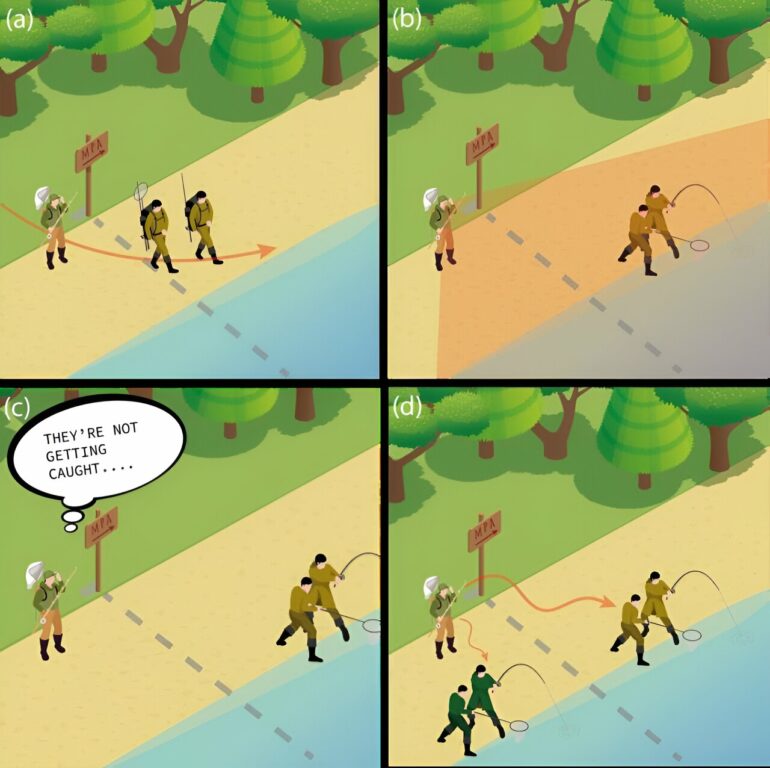Seeing other people break rules can make us act out in ways that we wouldn’t on our own. Applying this psychological concept to fields like conservation could help explain why social influence causes people to make decisions that are harmful to the environment.
By synthesizing insights from the fields of cognitive psychology, microsociology, and behavioral ecology in an opinion article publishing on September 13 in the journal Trends in Ecology & Evolution, a group of conservation scientists, ecologists, and social scientists demonstrate the role that social influence plays when people decide to break conservation rules and suggest ways to leverage this knowledge to better protect our endangered species and ecosystems.
“Rules that govern human behavior are a key component of biodiversity conservation,” write the researchers, who are based in Germany and Chile. “Reducing and preventing non-compliance with conservation-related rules can contribute to securing livelihoods, food security, public safety, and the conservation of biodiversity.”
Conservation rules can look different depending on the environmental concerns in the region they’re aimed at protecting. But in their article, the authors point to research showing that conservation rules are regularly broken. They also note that when rule-followers see others breaking rules, as research shows is relatively common, they might be more likely to engage in rule-breaking behaviors themselves.
“Consider a fisher who is thinking that people typically do not break the rule of no fishing inside their local no-take protected area,” write the researchers. “This fisher might also assume that other people would not approve of people breaking the rule. In the immediate situation, however, the fisher might act in non-compliance of the rule because they see several other fishers who are fishing inside a no-take protected area and they are not getting caught.”
The team argues that rule-breaking behaviors can be harmful for both the species and ecosystems the rules are protecting and for the rule-breakers themselves. “Even minor infractions can ultimately result in severe outcomes when people imitate the behavior of other rule breakers. For example, hikers leaving waymarked trails in protected areas can lead to littering, trampling of protected flora, fauna, and fungi, and occasionally human deaths,” they write.
While it’s true that some people might be more naturally inclined to break certain rules than others, the authors state, a person’s predisposition can’t fully explain rule-breaking behaviors. “What happens at the moment of decision-making, including interactions among group members, their surrounding environment, and ensuing social identity changes, play an essential role in both individual and group behavior,” says the team.
In order to improve the way we think about, implement, and enforce conservation interventions, the authors argue that we need to learn more about how and why people are breaking rules. They suggest that we experimentally test how social influences can impact people’s decisions using technology such as wearable electronics and virtual reality devices. For example, researchers could see whether people stray from a waymarked path while walking alone or around others venturing into areas where leaving the path is forbidden.
“Testing situational social influence processes that can lead to non-compliant behaviors presents clear benefits,” write the authors. “Spreading dynamics of rule-breaking behaviors in groups can be identified. This understanding can then support applied non-compliance research to improve the framing, development, and implementation of conservation interventions.”
More information:
William N.S. Arlidge et al, Situational social influence leading to non-compliance with conservation rules, Trends in Ecology & Evolution (2023). DOI: 10.1016/j.tree.2023.08.003
Citation:
We’re more likely to break conservation rules when we see others doing it, scientists say (2023, August 29)



